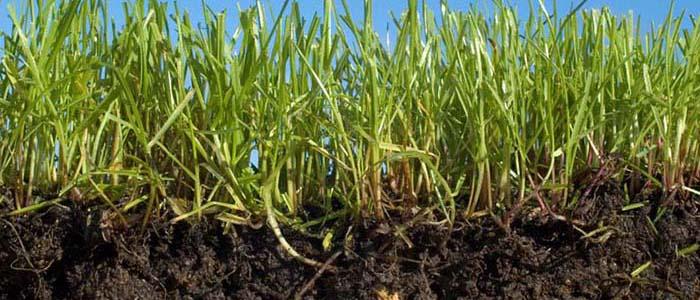Natural Lawn Care

Great looking lawns abound in Oak Park. But they can take a lot of work and be expensive to keep looking their best – especially if property owners rely on synthetic products to combat weeds and unwanted pests. Synthetic herbicides and pesticides also can harm beneficial plants and insects, as well as affect neighbors who may be sensitive to such products. Luckily there are alternatives that not only often cost less or are free, but also are more environmentally friendly.
Natural Weed Control
Weeds often are a symptom of larger problems such as poor soil health or bad maintenance practices. Use these simple tips to eliminate common weed problems:
Crabgrass
To eliminate crabgrass, keep lawns at least three inches high and supplement rainfall to ensure you lawn receives an inch of water each week.
Dandelions and Plantains
To prevent dandelions and broadleaf plantains, which often grow in compacted soil, aerate your soil and add nutrients by composting to improve soil health.
Creeping Charlie
The presence of creeping Charlie indicates excessive moisture and soil compaction. Place dirt in low areas to eliminate poorly draining spots. Reseed and add a compost top dressing to outcompete this weed. Where weeds are sparse, try hand picking with a sturdy weeding tool.
Natural Fertilizing
All plants, including grass, need nutrients to thrive. Synthetic fertilizers that have a lot of the nutrients, but they can be expensive and have undesirable environmental impacts. Consider the following alternatives instead:
Soil Sampling
Before adding fertilizer to your lawn, make sure it needs it. Have a soil sample analyzed and add only the nutrients your lawn is lacking.
Choose Natural
Use natural fertilizers instead of conventional ones. Look for products that contain plant and animal byproducts such as alfalfa meal, fish meal and rock phosphate.
Grass Cycling
Leaving grass clippings on the lawn – grass cycling – is a natural and free alternative to fertilizers.
Compost
Instead of throwing away yard and food waste, consider composting. The compost created is an inexpensive, nutrient-rich soil amendment that can replace or supplement fertilizers. Pre-made compost also is available at most home and garden stores, or join the Village's Compostable Program.
Alternative Maintenance Practices
To lessen the negative environmental impact of your lawn and garden, consider these sustainable practices:
Choose Electric
Choose electric or human-powered tools, such as push mowers, hand clippers, weeding tools and rakes rather than gas powered mowers and leaf blowers. Many lawn care providers offer electric powered services.
Mow Less Often and Mow High
Mow less frequently and raise the mower height setting to at least three inches. This approach will create healthier root systems better able to fight off weeds and drought.
Water Correctly
Water deeply and infrequently to encourage deep root growth. Water in the early morning or at dusk to minimize evaporation. Ideally, provide one inch of water each week. If watering with a sprinkler, use a tuna can to measure when you have reached an inch. Watering correctly also may save money on your water bill. Learn more about water efficiency.